Building Partnerships for Climate and Health: The SOLACE-AI Global Stakeholder Meeting in Ethiopia
In early September 2025, our international SOLACE-AI team convened in Addis Ababa, Ethiopia, for our first in-person Global Stakeholder Meeting. Hosted by our Ethiopian partners at Jigjiga University (led by Professor Nasir Warfa, and Dr Elyas Abdulahi), this gathering marked a key milestone in our collaborative mission to address climate-related health emergencies through rapid, automated evidence synthesis.
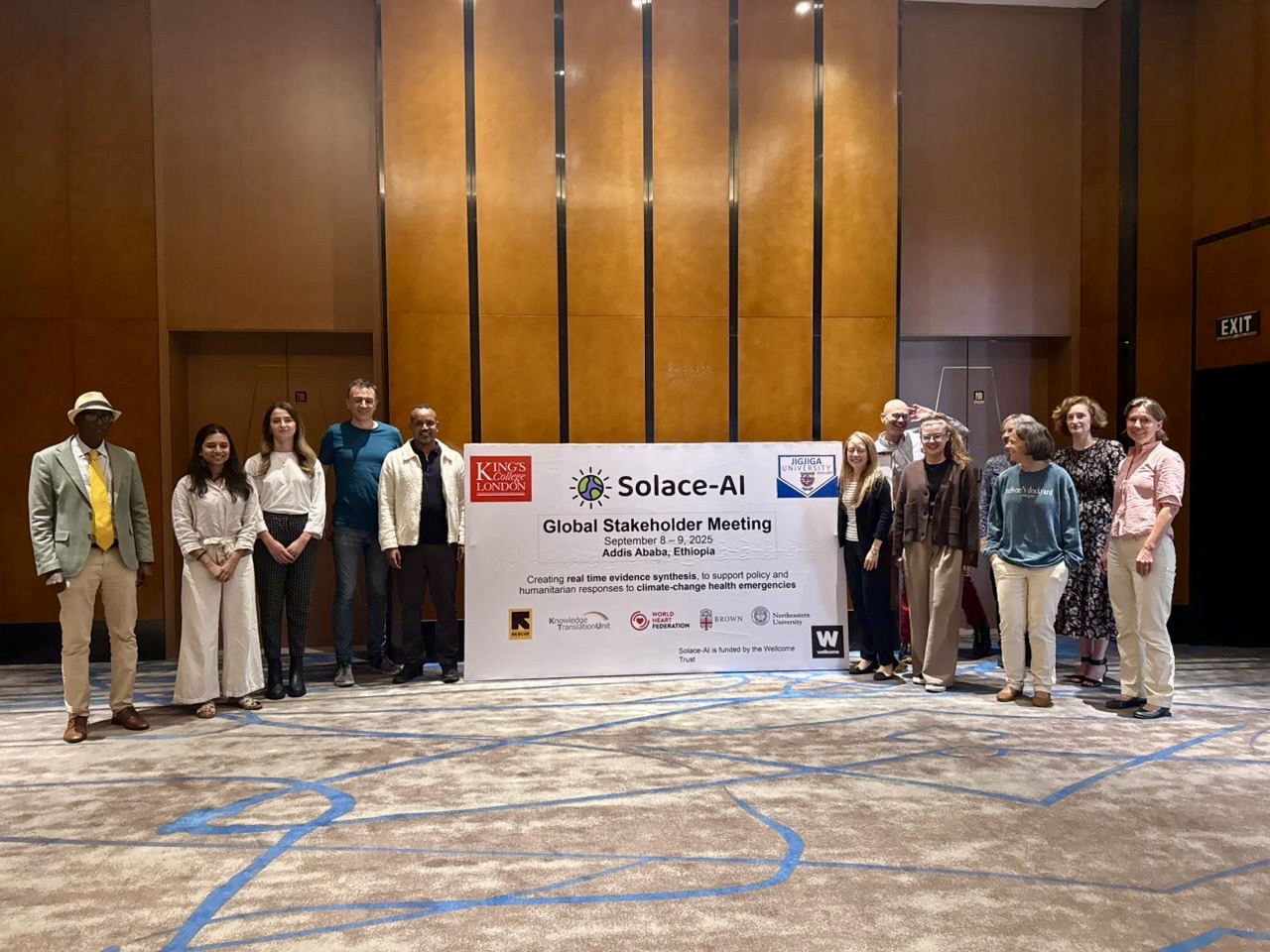
The Global Stakeholder Meeting brought together policymakers, health leaders, and researchers from across Ethiopia and beyond for a day of collaboration at the Skylight Hotel. The meeting was opened by Dr Beshir Abdullahi, then president of Jigjiga University and Ethiopia's State Minister for Health, Wro Saharla Abdullahi, who called for stronger integration between health and climate strategies.
Our team presented the SOLACE-AI vision and demonstrated a prototype of the tool, while partners from Jigjiga University shared insights from our Ethiopia case study: addressing mental health and substance use challenges among communities displaced by climate change in the Somali region. Stakeholders also shared their own initiatives and perspectives on key issues including ethical AI, climate resilience, and digital health solutions.
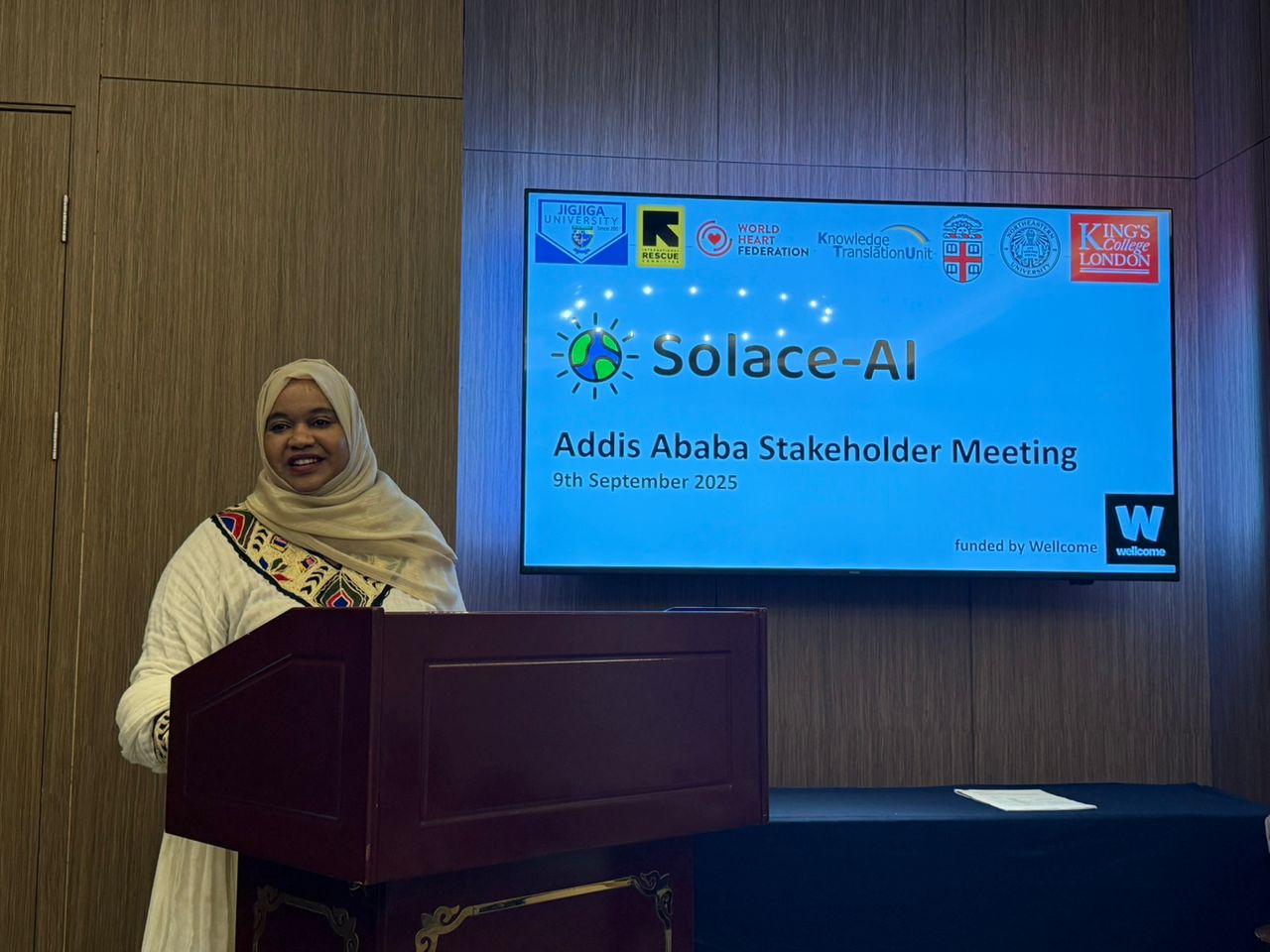
The meeting generated concrete priorities for SOLACE-AI's development. Stakeholders emphasized the need for a curated, inclusive database that draws upon academic journals from the global south as well as the global north, policy documents, and grey literature - with an offline upload feature for locally-held documents. We explored criteria for case study selection, approaches to critical appraisal of diverse evidence types, and addressed concerns around ethical AI development and the tool's long-term sustainability.
While in Addis Ababa, we visited the Ministry of Health to learn about Ethiopia's digital health priorities, and the Amanuel Mental Specialised Hospital, the country's only public mental health hospital, where we met dedicated clinicians and patients whose experiences ground our research in lived realities.
We then travelled to Jigjiga, the capital city of Ethiopia's Somali State, where we met with the regional leaders led by the Deputy President, Mr Ibrahim Osman and Chief of Cabinet, Dr Hussein Qasim. We had brief discussions on the destructive impact of climate change and related mental health consequences. The leaders confirmed their commitment to finding durable solutions to the adverse impacts of climate change. Subsequently, we visited the Qoloji internally displaced persons' camp, where community leaders spoke about the devastating reality of displacement. One mother told us: 'We just exist in the camp... Just a mere existence' - describing how losing their livestock meant losing their entire way of life. She spoke of the anguish of many residents of not knowing whether their children who had migrated on dangerous routes were alive or dead.
Residents drew direct lines between climate change, conflict and their displacement, a connection that might not be apparent to external researchers reviewing academic literature alone. These conversations reinforced why Solace-AI must address a critical gap: 80% of health studies are conducted in high-income countries, and few African journals are indexed in major databases like PubMed. Our tool must incorporate grey literature, policy documents, and locally-generated evidence. The breadth of impacts residents described: from livestock loss to mental health, from livelihoods to community cohesion, showed why co-design with affected communities is essential to identifying which evidence matters for climate-health emergencies
As AI continues to evolve, our work must evolve with it; inclusive, ethical, and centre the knowledge and leadership of those most affected. The conversations in Ethiopia strengthened our commitment to ensuring SOLACE-AI is not just a research tool, but a force for equitable impact in the world.
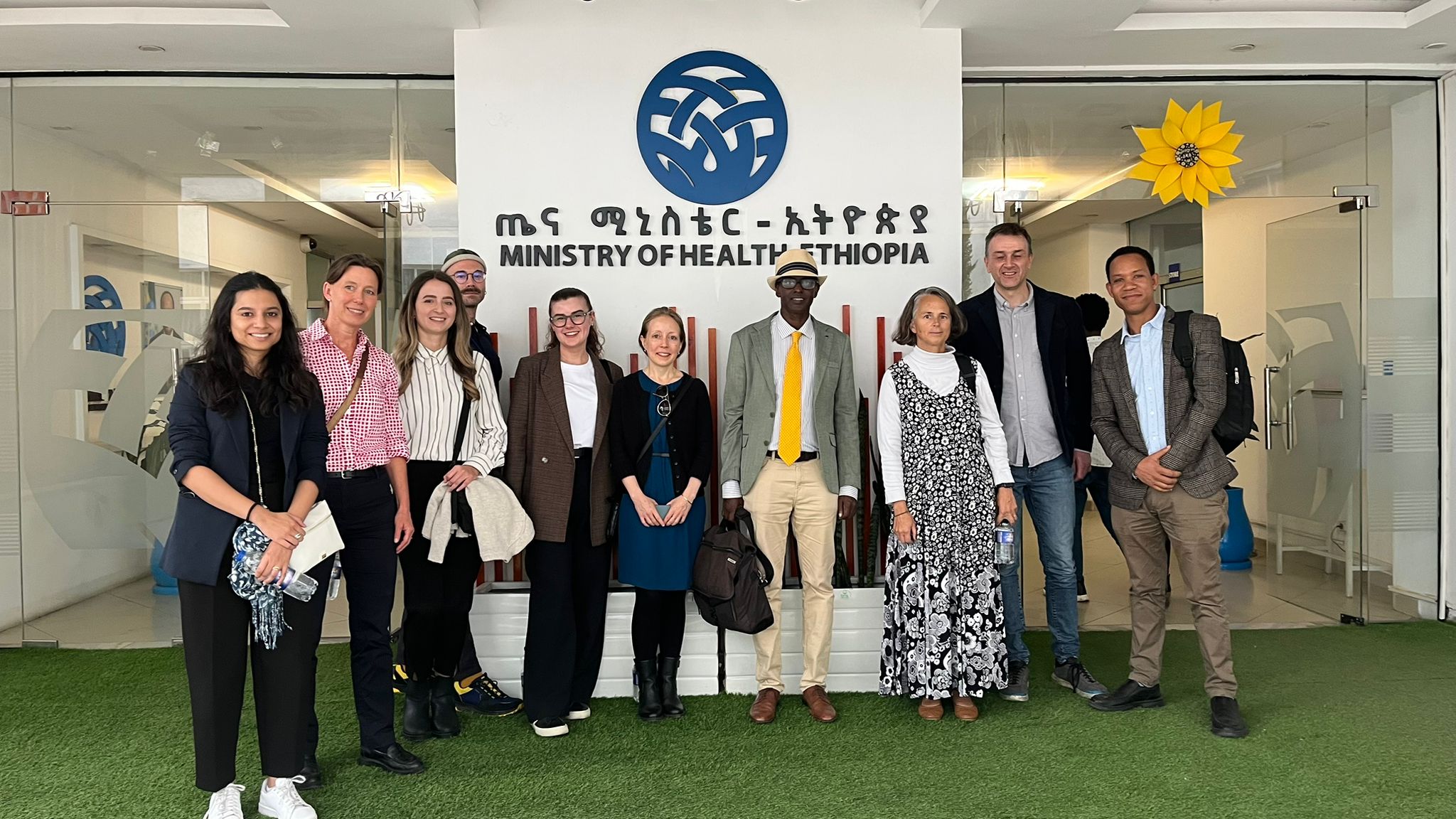
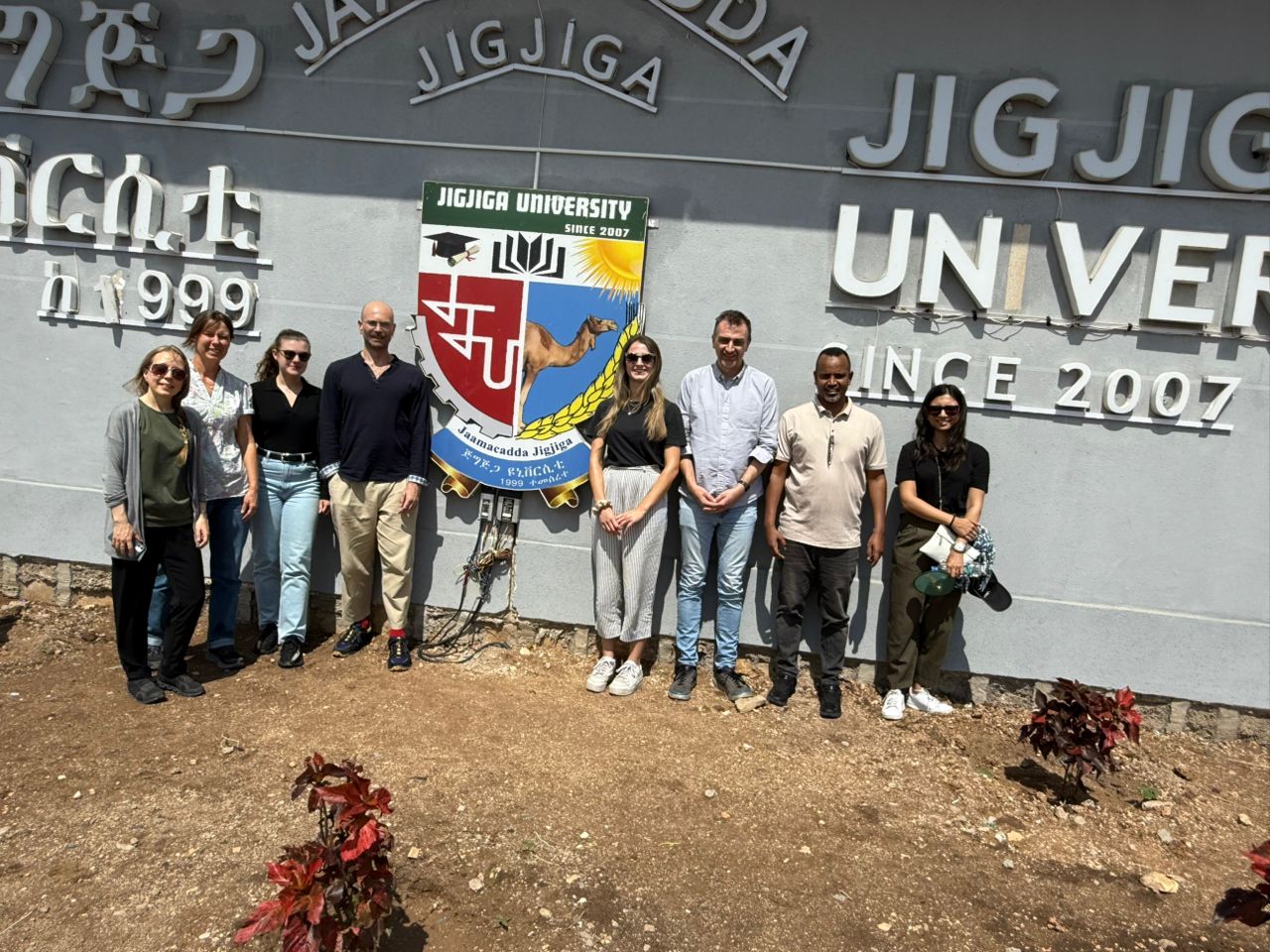
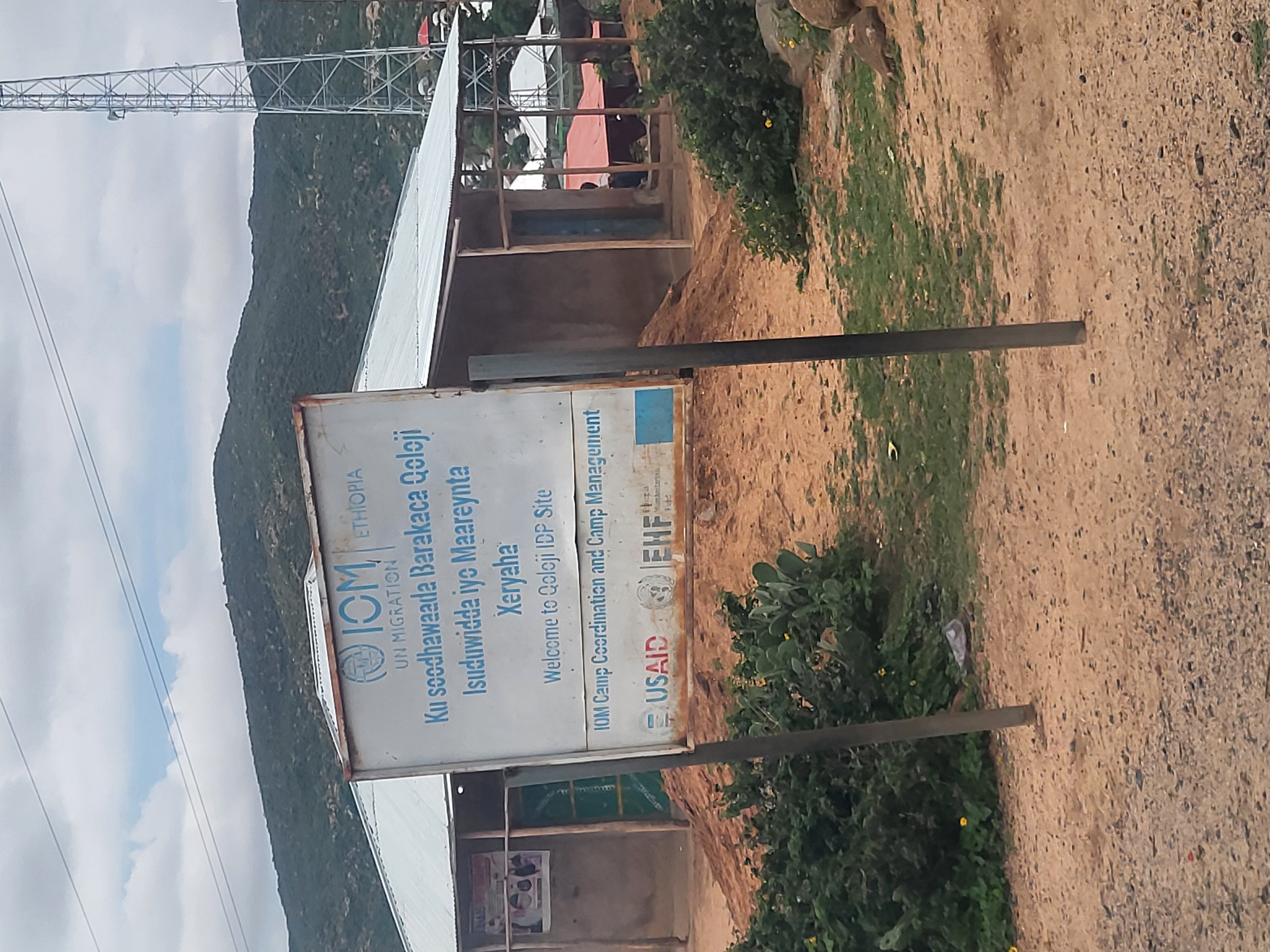
Images (top to bottom): The SOLACE-AI team at the Ethiopian Ministry for Health; Jigjiga University; Qoloji IDP Camp.